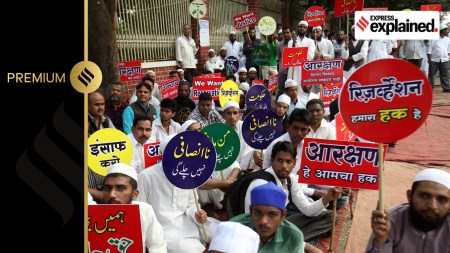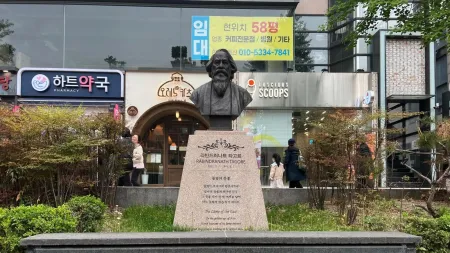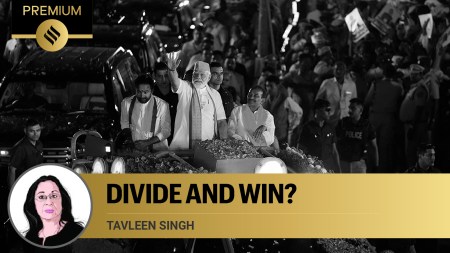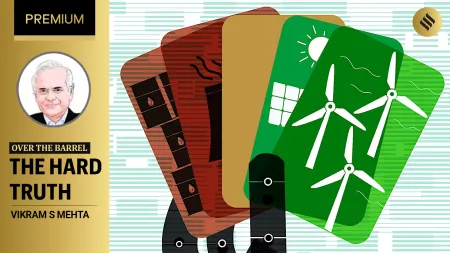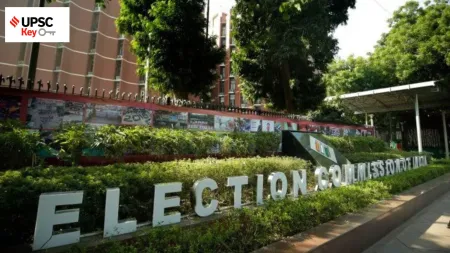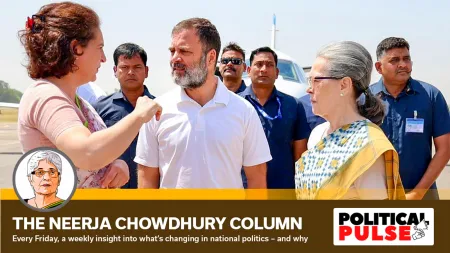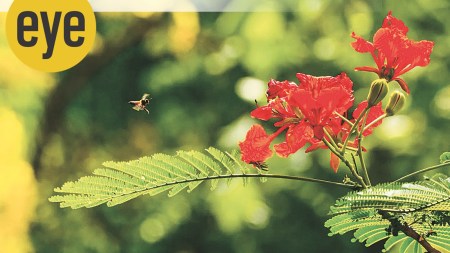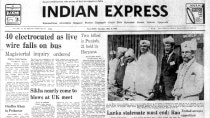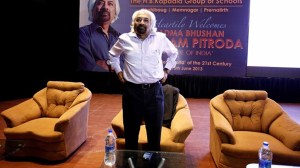- India
- International
Covid-19 took my wife
Battling a sneaky virus in a healthcare system under stress where the only consolation is humanity
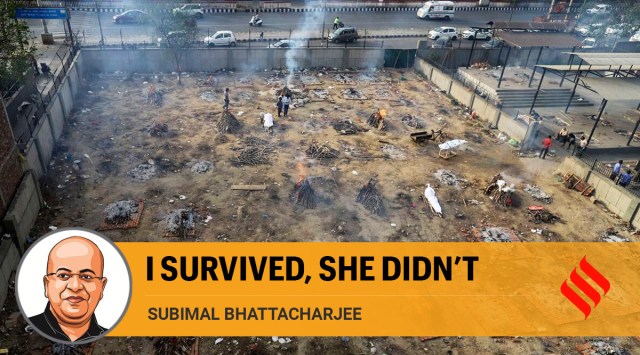 Multiple funeral pyres of Covidd-19 burn in a ground that has been converted into a crematorium, in New Delhi. (AP Photo)
Multiple funeral pyres of Covidd-19 burn in a ground that has been converted into a crematorium, in New Delhi. (AP Photo)The novel coronavirus kills. It took my wife, Dr Joyeeta Bhattacharjee. It almost got me but I made the journey back from the ICU. Joyeeta, who also wrote for The Indian Express, was an expert on Bangladesh and India’s eastern arc, someone who had lots of contributions yet to make in the rarefied world of research-based foreign diplomacy. Joyeeta was a fit and active person, who ventured out rarely, always with a double mask — even when the rest of the country had thrown caution to the winds. That is the cruel irony.
It started when Joyeeta and I had gone in for our first round of vaccination on April 4. The next day, we felt some fever and uneasiness but fever, as a side-effect of vaccination, had been well documented. Two days later, we learnt that one of my colleagues had been running a fever for almost four days and Joyeeta and I had encountered him in my office. We queued up for four hours at the hospital for an RT-PCR test for COVID-19. A day later, the reports were negative. Our comfort lasted for a very short time as our oximeter reading started plummeting. We knew something was not right and started immediate attempts at securing a hospital bed. But having tested negative for the virus, we were not eligible for a COVID-19 hospitalisation. A CT scan confirmed our worst fears. We both had severe lung damage, which accounted for the falling oxygen levels. On April 10, another RT-PCR test confirmed us as COVID-19 positive.
It took all of our accumulated influence to get us an oxygen bed in a Greater Noida hospital. We had access to medicine and oxygen but very soon Joyeeta had to be sent to the ICU. Given her worsening situation, she was moved to Sir Ganga Ram Hospital, where she was put on a ventilator. She continued to be on a ventilator until April 20, when she passed away leaving a life-size hole in my life. Meeting her for the last time was impossible, but I mustered the courage and physical strength to go and hold her cold hands, before the final goodbye from the hospital.
Back home, recuperating in my sadness, I wonder if we could have done something differently that would have saved her. The negative RT-PCR report cost us close to three days, the time that might have made the difference between life and death. I sometimes wonder if the testing facility had got the samples mixed up or there was an error in testing. But having spoken to other COVID-19 survivors, what I have realised is that the virus has become very sneaky. It has learnt to hide in the deepest recess of our lungs and lull us into a false sense of security. Many others have told me that they had tested negative and had yet borne the full force of the virus.
In these difficult weeks, the nation has descended into an apocalyptic state, with a record number of daily infections and deaths being registered every day. The original mantra to beat the virus was “test, trace, isolate and vaccinate”. The huge numbers effectively mean that “test, trace and isolate” is not going to work. I have experienced the stress that the healthcare system is under. Despite my privilege, I have seen the frustrating lines and lack of basics to fight the virus and can empathise with the common man who has the odds stacked against him.

The only silver lining is that humanity has not been lost. The doctors, nurses and paramedical staff are doing so much in the surge. I have personally seen instances of healthcare workers saving lives despite their 24×7 labour and the risks to themselves. The surge has exposed the shortcomings in our healthcare system and shown how we lost a year and didn’t plan well for a second wave. Universal vaccination at the fastest pace is the only possible solution to beat the virus. But what we all need is that we optimise all our resources to come out of the current situation soonest.
This column first appeared in the print edition on April 30, 2021 under the title ‘I survived, she didn’t’. The writer is a member of the editorial board of the cyber journal of Chatham House.
EXPRESS OPINION
More Explained
May 08: Latest News
- 01
- 02
- 03
- 04
- 05



